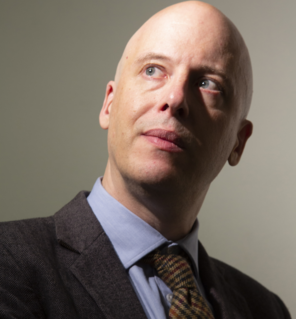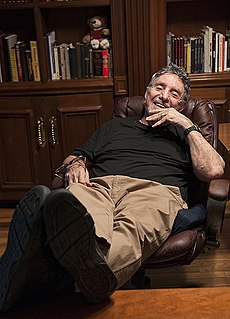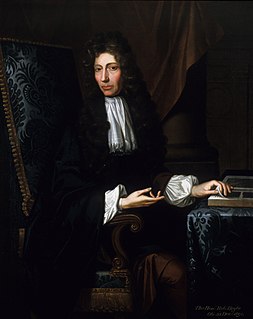A Quote by Daniel Defoe
As I had once done thus in my breaking away from my Parents, so I could not be content now, but I must go and leave the happy View I had of being a rich and thriving Man in my new Plantation, only to pursue a rash and immoderate Desire of rising faster than the Nature of the Thing admitted; and thus I cast my self down again into the deepest Gulph of human Misery that ever Man fell into, or perhaps could be consistent with Life and a State of Health in the World.
Quote Topics
Related Quotes
I'm the smartest man in the world. Once I wore a cape in public, and fought battles against men who could fly, who had metal skin, who could kill you with their eyes. I fought CoreFire to a standstill, and the Super Squadron, and the Champions. Now I have to shuffle through a cafeteria line with men who tried to pass bad checks. Now I have to wonder if there will be chocolate milk in the dispenser. And whether the smartest man in the world has done the smartest thing he could do with his life.
The bourgeois thinkers of the eighteenth century thus turned Aristotle's formula on its head: satisfactions which the Greek philosopher had identified with leisure were now transposed to the sphere of work, while tasks lacking in any financial reward were drained of all significance and left to the haphazard attentions of decadent dilettantes. It now seemed as impossible that one could be happy and unproductive as it had once seemed unlikely that one could work and be human.
Every man that ever lived craved perfect happiness, the detective poignantly reflected. But how can we have it when we know we’re going to die? Each joy was clouded by the knowledge it would end. And so nature had implanted in us a desire for something unattainable? No. It couldn’t be. It makes no sense. Every other striving implanted by nature had a corresponding object that wasn’t a phantom. Why this exception? the detective reasoned. It was nature making hunger when there wasn’t any food. We continue. We go on. Thus death proved life.
For where there is true love, a man is neither out of measure lifted up by prosperity, nor cast down by mishap; whether you give or take away from him, so long as he keeps his beloved, he has a spring of inward peace. Thus, even though thy outward man grieve, or weep downright, that may well be borne, if only thy inner man remain at peace, perfectly content with the will of God.
How did it happen that now he could see everything so clearly. Something had given him leave to live in the present. Not once in his entire life had he come to rest in the quiet center of himself but had forever cast himself from some dark past he could not remember to a future that did not exist. Not once had he been present for his life. So his life had passed like a dream. Is it possible for people to miss their lives the way one can miss a plane?
My mind seems to have become a kind of machine for grinding general laws out of large collections of facts, but why this should have caused the atrophy of that part of the brain that alone on which the higher tastes depend, I cannot conceive. A man with a mind more highly organised or better constituted than mine would not, I suppose, have thus suffered, and if I had to live my life over again, I would have made a rule to read some poetry and listen to some music at least once every week; for perhaps the parts of my brain now atrophied would thus have been kept alive through use.
Why did I not die? More miserable than man ever was before, why did I not sink into forgetfulness and rest? Death snatches away many blooming children, the only hopes of their doting parents: how many brides and youthful lovers have been one day in the bloom of health and hope, and the next a prey for worms and the decay of the tomb! Of what materials was I made, that I could thus resist so many shocks, which, like the turning of the wheel, continually renewed the torture? But I was doomed to live.
If the state cannot be entirely composed of good men, and yet each citizen is expected to do his own business well, and must therefore have virtue, still inasmuch as all the citizens cannot be alike, the virtue of the citizen and of the good man cannot coincide. All must have the virtue of the good citizen - thus, and thus only, can the state be perfect; but they will not have the virtue of a good man, unless we assume that in the good state all the citizens must be good.
Some leave our life with tears, others with an insane frigidity; Mrs. Wilcox had taken the middle course, which only rarer natures can pursue. She had kept proportion. She had told a little of her grim secret to her friends, but not too much; she had shut up her heart--almost, but not entirely. It is thus, if there is any rule, that we ought to die--neither as victim nor as fanatic, but as the seafarer who can greet with an equal eye the deep that he is entering, and the shore that he must leave.
If I had two lives, in one life I could invite her to stay at my place, and in the second life I could kick her out. Then I could compare and see which had been the best thing to do. But we only live once. Life's so light. Like an outline we can't ever fill in or correct... make any better. It's frightening".
He, who is gone, was one of the very kindest friends I possessed, and yet he was not kinder perhaps to me, than to others. His intense mind and powerful feelings would, I truly believe, have done the world some service, had his life been spared but he was of too sensitive a nature and thus he was destroyed!
Strange indeed is human nature. Here were these men, to whom murder was familiar, who again and again had struck down the father of the family, some man against whom they had no personal feeling, without one thought of compunction or of compassion for his weeping wife or helpless children, and yet the tender or pathetic in music could move them to tears.

































